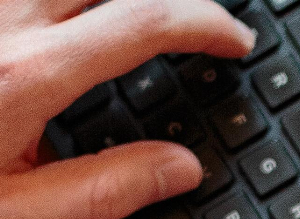What is burnout?
Published 19 Jun 2021 • By Aurélien De Biagi
Burnout is, according to the World Health Organisation, a state of intense fatigue, loss of control and inability to achieve results at work. Since the start of the COVID-19 pandemic, burnout has especially been on the rise, with Mental Health UK has reporting that 1 in 5 UK workers have felt 'unable' to manage pressure and stress levels at work.
What is burnout exactly? How is it different that work addiction or depression? What can we do to prevent burnout?
We answer these questions and more in our article!

What is burnout?
Burnout syndrome was a term coined in the 1970s to describe a state of exhaustion in the work of aid and care professionals. Today, it extends to all professions requiring a high level of personal investment. Burnout is the result of a situation of chronic stress and prolonged investment in an emotionally demanding work environment.
There are three dimensions to this syndrome for the patient, namely:
- Emotional exhaustion: this is intense physical and psychological fatigue. Time off (weekends, holidays, etc.) is no longer sufficient to relieve this fatigue, which becomes chronic.
- Depersonalisation or cynicism towards work: the patient will have a negative view of others, he or she "dehumanises" his or her colleagues and entourage. This is sometimes considered to be a defence mechanism against exhaustion.
- A feeling of non-fulfilment at work: this is a sense of reduce personal accomplishment and a tendency to negatively evaluate the worth of one's work.
As a result, burnout is also reflected in a number of symptoms:
- Physical symptoms: fatigue, insomnia, migraines, etc.
- Psychological or emotional symptoms: anxiety, feelings of emptiness, etc.
- Cognitive symptoms: difficulty concentrating, making decisions, etc.
- Behavioural symptoms: self isolation, aggression, impulsiveness, etc.
Today, burnout is not considered to be a mental illness. Indeed, it is not officially diagnosed (neither by the WHO nor by the International Classification of Diseases (ICD)). It therefore has no specific clinical diagnosis. On the other hand, it is a syndrome with clinical signs and symptoms that allow it to be identified.
Moreover, burnout syndrome must be distinguished from work addiction (sometimes called workaholism), which refers to a negative or compulsive behavioural pattern characterised by spending an excessive amount of time working, neglecting family and other social relations. Such behaviours should be carefully monitored, as a failure or a questioning of an affected person's ability can cause a swing towards burnout.
Conversely, burnout can also occur in people who do not have strong emotional attachments to or are compulsive in their work. In fact, excessive work constraints, lack of support at work, or a crisis over the meaning of one's work can be enough to trigger burnout.
Finally, this syndrome should also be distinguished from depression. As defined earlier, burnout is a syndrome caused by overwork, poor organisation, etc. It is a process of breakdown in one's relationship with work that develops in the professional environment. Depression, on the other hand, is a state in which the patient finds him or herself. It affects all aspects of the patient's life (not just work) and requires comprehensive treatment. However, intense and/or prolonged burnout can, due to the isolation, fatigue and loss of self-confidence that it causes, plunge the patients into a deep depression.
How to prevent burnout?
Each individual's situation is different, so each case is unique and needs to be modified. However, there are a few general ways to prevent burnout.
A first preventive measure is to identify potential sources of burnout in order to make improvements or adaptations in working conditions. Certain risk factors have been identified, such as:
- Mismatch in workload (too little or too much work)
- Lack of fairness in the workplace
- Lack of appropriate awards, be that financial such as pay, or recognition
- Lack of clarity in objectives
- Loss of a sense of positive connection with others in the workplace
- Etc.
In addition, people who are ambitious or perfectionist by nature seem to be more prone to this syndrome. The identification of these factors and the corresponding adaptation of working conditions can help prevent burnout.
In addition, the company can also take concrete action by integrating the six categories of psychosocial risk into its occupational risk prevention approach. Psychosocial risk corresponds to work situations in which the employee may be subject to stress or violence such as insults, aggression, harassment, etc. This stress may be internal (by colleagues) or external (by people outside the company). These risks can have serious consequences for employee health, such as an increased risk of cardiovascular disease, musculoskeletal problems, anxiety and depression, burnout syndrome and even suicide. Thus, the assessment of these risks and the implementation of preventive measures can reduce the incidence of burnout.
What is "zoom burnout"?
“Zoom fatigue” or “zoom burnout” is a new syndrome that causes fatigue through the increasing use of digital communication and the lack of real social contact.
Due to the pandemic and the widespread use of teleworking, a new form of fatigue has emerged. Indeed, both professionals and students have to spend more and more time in front of virtual communication platforms such as Zoom, Microsoft Teams, Google Meet or Skype to be able to communicate.
Researchers have looked into the origin of this new fatigue. One of the explanations is audio. Indeed, delays of a few milliseconds (even when there are no computer or connection problems) in verbal response may have a negative effect on our social relations.
Another explanation proposed by researchers is linked to the physiological mechanism of fatigue. Indeed, unconsciously, for each action, our mind evaluates the reward/effort balance. Thus, we always seek to perform the least energetically costly activity for the greatest reward. When the reward system (dopaminergic system) is activated, the brain structures associated with it increase alertness and motivation. During social contact, a hormone is released: oxytocin (the "love hormone"). Oxytocin is involved in social bonds, sexuality, stress and maternal behaviour. It also stimulates the same structures as those involved in the reward circuit and therefore reduces fatigue.
In addition, the type of social relationship is important. Indeed, MRIs have shown that, during real social connections, activity in the areas of the brain associated with reward is higher than during virtual connections. This suggests that more social contact is associated with more reward and therefore less fatigue. Virtual contact does not compensate for real-life contact. This results in greater fatigue.
Was this article helpful to you?
Share your thoughts and questions with the community in the comments below!
Take care!
Sources:
- Burnout, Mental Health UK
- Epuisement professionnel ou burnout, INRS
- Burn out (épuisement professionnel), Vidal
- Repérage et prise en charge cliniques du syndrome d’épuisement professionnel ou burnout, HAS
- Risques psychosociaux (RPS), INRS
- A Neuropsychological Exploration of Zoom Fatigue, Psychiatric Times
4 comments



 Facebook
Facebook Twitter
Twitter




